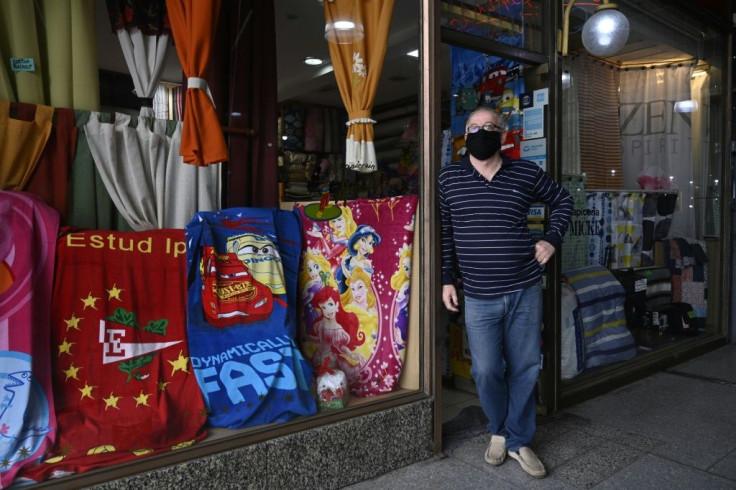Argentine Capital Begins Timid Reopening After Virus Lockdown

Argentina began a timid reopening of economic activity in the capital Buenos Aires on Monday, relaxing coronavirus containment measures despite continued high infection rates.
"We need to learn to live with the virus because if we don't, the economic damage will be worse than the damage done by the virus," Daniel Bailo, a vendor at a hiking and fishing store that opened on Monday, told AFP.
The reopening of the greater Buenos Aires area, where 90 percent of Argentina's coronavirus cases have been concentrated, comes despite the country reporting more than 3,000 new infections a day.
This phase will continue until August 2.
"We hope people will be responsible," Buenos Aires mayor Horacio Rodriguez Larreta said on Monday.
He was one of the first people to head out for a morning run as a marked increase of people could be seen on the street.
The new measures allow citizens to exercise outside and to visit places of worship.
Other activities to restart are non-essential businesses such as hairdressers; lawyers and psychologists; and industry including manufacturing and food processing.
Rodriguez Larreta advised caution and warned that "personal contact is by far the largest source of infection."
Containment measures were relaxed once before but then reimposed on July 1 to contain a surge in cases in the Buenos Aires metropolitan area, home to 14 million of Argentina's 44 million population.

Fears remain that new cases will continue to increase, potentially saturating hospital intensive care units (ICU).
On Monday, there were 842 people in intensive care due to COVID-19, meaning 54 percent of ICU beds were occupied nationwide and 65 percent in the capital.
Argentina has recorded more than 126,000 coronavirus cases and close to 2,300 deaths.
The provinces of Jujuy, Chaco and Rio Negro also eased containment measures on Monday.
Argentina has been in recession for two years, and the coronavirus crisis has hit ordinary people hard. The government launched a large social support system to help soften the blow.
At the same time, it has been trying to renegotiate $66 billion of debt with bondholders.
Unemployment rose to 15 percent in the second quarter, according to a study by consultants Ecolatina, who warned that "the destruction of private sector jobs is only the tip of the iceberg."
Poverty affects 35 percent of the population, but a study by the United Nations said the coronavirus could increase that figure to 40 percent.
The economy sank 11 percent over the first four months of the year, and the International Monetary Fund expects GDP to be down by almost 10 percent for 2020.
© Copyright AFP {{Year}}. All rights reserved.





















